P.E.I. farms become living labs for scientists, watershed groups and farmers
Researchers are gathering samples from farms across the Island as the second season of the Living Laboratories project hits harvest time.
The living lab concept brings together scientists, watershed groups and farmers on P.E.I. to do projects together in real fields.
"This co-development is the key part of it, to be able to go out and ask the questions, what concerns you on your farm," said Johanna Kelly of the Kensington North Watersheds Association, one of 14 partners in the project.
"How can we create climate change resilience on a farm, make sure that our soils are healthy enough that they are retaining more moisture."
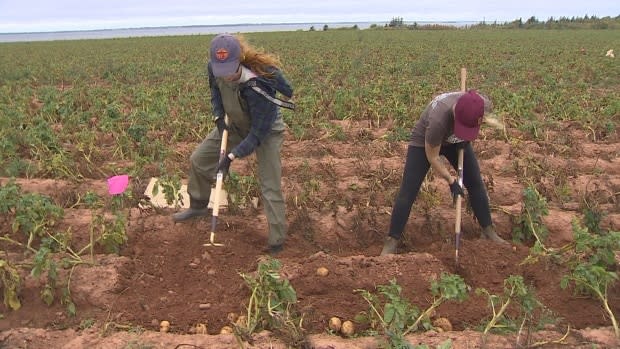
Kelly said the project will also look at how to improve yield for farmers.
"There will be a socioeconomic portion. What's the return to the farm? What's the cost to the farm?" Kelly said.
"What's the effect of each management practice on soil health, water quality, and pay yield? What's the benefit to the actual farm as well?"
Real life farm
The living lab program on P.E.I. is run by the East Prince Agri-Environment Association, a not-for-profit organization.
The group represents 13 Prince Edward Island farms that are working together to create sustainable agricultural practices.
"To be able to gather together and have farmers ask questions directly to scientists, and for the scientists to have the experience of what are the realities of an everyday farm," Kelly said.
"There's climate change, there's weeds and there's pests and there's nematodes. There are a lot of things that are a challenge to a farmer every day and how do we work together to overcome those."
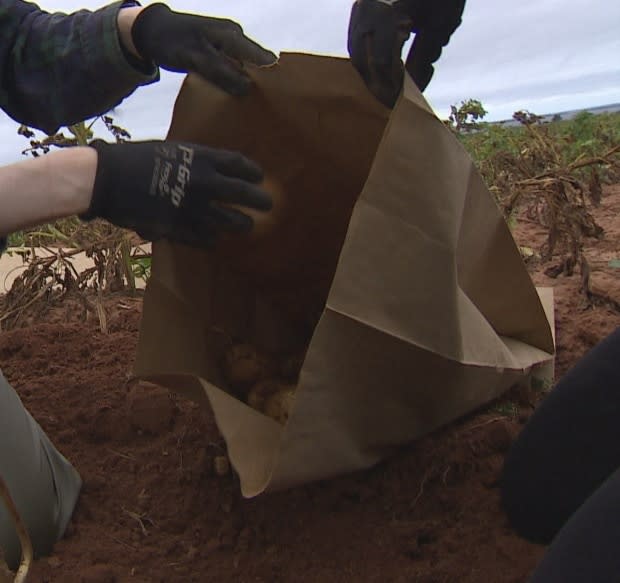
Kelly said doing the research in actual farm fields across the Island is also more reflective of the realities of farming.
"Farming is a challenge, so many things are not predictable," Kelly said.
"They might be predictable on a study farm, and somewhat under control, but in the real world, there's far more challenges."
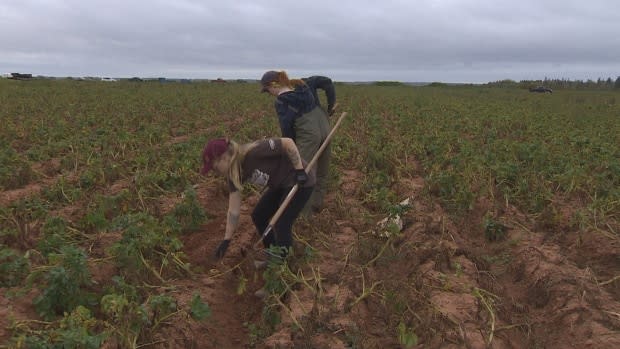
Kelly said the return to watershed groups, like hers, is the relationships that she has built through the project.
"I have no problem picking up the phone if I have a question about an agricultural practice and calling either a farmer or an industry professional because we all know each other pretty well now," Kelly said.
"Sometimes there's a lot to be learned as a watershed group, we sometimes can take for granted some of the challenges that happen on a farm, so this answers a lot of questions."
Bringing their experience
Judith Nyiraneza is the living lab co-lead scientist from Agriculture and Agri-Food Canada.
"Research scientists, they have their own experience but when you add a watershed group or a grower, it makes the project interesting," said Nyiraneza.
"Because everyone brings his own experience and then it makes the project very interesting in that way,"

Nyiraneza said her colleagues at Agriculture Canada are interested in watching the living lab model and the results the work is producing.
"All scientists are interested because it makes our research more make sense because we know that the issues we are tackling, they are the issues that were identified by our stakeholders," Nyiraneza said.
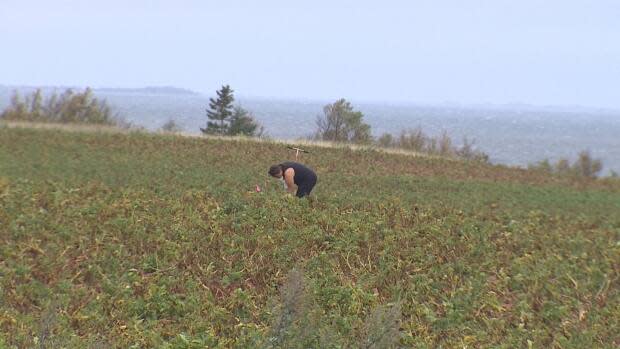
'A feedback loop'
For Matt Ramsay of Oyster Cove Farms in Hamilton, P.E.I., the living lab is adding to work he has already been doing to improve soil quality at his farm.
"Soil's been on the minds of most of us for many years," Ramsay said.
"We've been looking a lot at soil organic matter, at what we can do, what we can't do, what we've been doing wrong. This has provided the beginnings of a feedback loop for us to know whether we're on the right page or not."
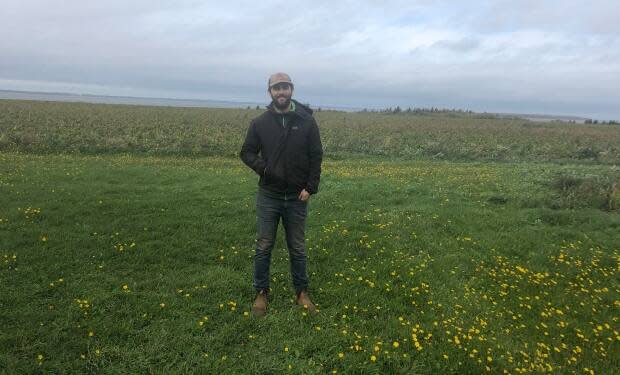
Researchers have been collecting soil samples and harvesting small sections of potato fields by hand at Ramsay's farm this month.
Ramsay said, even after just two seasons, there have been some interesting results.
"We've had some hunches that have been shored up by some of the data that's being produced here," Ramsay said.
"It's allowing us to see the areas that aren't producing well, the areas that are and some of them line up with what we thought and some of them don't. So shedding some new light on some questions that we've had."

The living lab project on P.E.I. will receive $2.4 million of the $10 million that the federal government is investing in the program.
P.E.I. is the first living lab in Canada, with others being rolled out now across the country.
More from CBC P.E.I.


